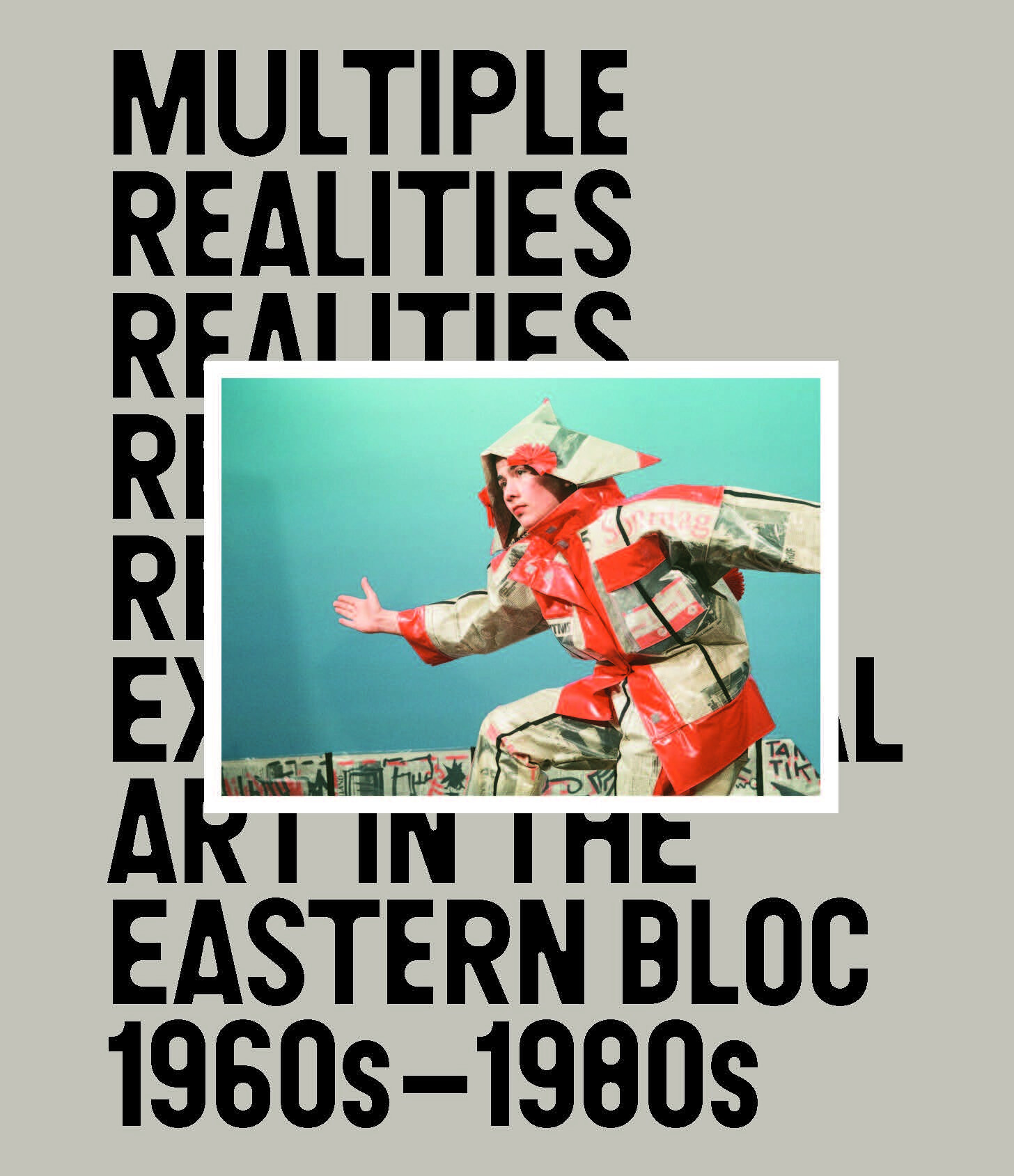November 11, 2023–March 10, 2024
725 Vineland Place
Minneapolis, MN 55403
United States
Hours: Wednesday–Sunday 10am–5pm,
Thursday 10am–9pm
T +1 612 375 7600
info@walkerart.org
Multiple Realities: Experimental Art in the Eastern Bloc, 1960s–1980s offers a sweeping survey of experimental art made in six Central Eastern European nations during the 1960s to 1980s. Charting a generation of artists invested in experimentation, the Walker-organized exhibition features artworks rarely seen in the United States. Despite their geographical proximity, artists working during this time encountered different conditions for daily life and art-making, confronting varying degrees of control and pressure exerted by state authorities. Embracing conceptual or formal innovation and a spirit of adventurousness, Multiple Realities sheds light on ways that artists refused, circumvented, eluded, and subverted official systems, in the process creating works often riddled with wit, humor, or irony.
Drawing on visual art, performance, music, and material culture, Multiple Realities: Experimental Art in the Eastern Bloc, 1960s–1980s brings together more than 250 works by nearly 100 artists from East Germany, Poland, Czechoslovakia, Hungary, Romania, and Yugoslavia. While it presents select canonical figures from the region, the exhibition foregrounds lesser-known practitioners, particularly women artists, artist collectives, and those exploring embodiment through an LGBTQIA+ lens.
Presented as a sequence of thematic chapters, the exhibition explores the relationships between art and politics, and the roles that institutions play in society. How did artists negotiate their daily lives, in which authority and power were made manifest through control and surveillance? What can we learn from the production, circulation, and reception of art outside of capitalist economies? How did restrictions, whether practical or ideological, inform the possibilities of artistic practice at this time? Multiple Realities explores these concerns through a story of art’s flourishing through community, friendship, and self-organization.
Curatorial team
Pavel S. Pyś, Curator of Visual Arts and Collections Strategy, Walker Art Center; with William Hernández Luege, curatorial associate, Painting and Sculpture, San Francisco Museum of Modern art, and former curatorial assistant, Visual Arts, Walker Art Center; and with Laurel Rand-Lewis, curatorial fellow, Visual Arts, Walker Art Center.
Curatorial Consultants: Dušan Barok, editor, Monoskop.org; Michał Grzegorzek, independent curator, Warsaw; Joanna Kordjak, curator, Zachęta National Gallery, Warsaw; Daniel Muzyczuk, head of contemporary art, Muzeum Sztuki Łódź; Ksenia Nouril, gallery director, The Arts Students League, New York; and Suzana Vuljevic, historian, writer, and translator, Detroit.
Exhibition catalogue
The exhibition is accompanied by new scholarship in a richly illustrated catalogue, designed by Mark Owens and Ziga Testen, and produced by the Walker, foregrounding perspectives reflecting on the period’s resonance and meaning through the lens of today.
The publication includes newly commissioned essays, a roundtable discussion, and thematic timelines, with contributions by Ivana Bago (art historian, Zagreb, Croatia), Dušan Barok (editor, Monoskop.org), Michał Grzegorzek (independent curator, Warsaw), Daniel Muzyczuk (head of contemporary art, Muzeum Sztuki Łódź, Poland), Pavel S. Pyś (exhibition curator, Walker Art Center), Kathleen Reinhardt (Director, Georg Kolbe Museum, Berlin), Natalia Sielewicz (curator, Museum of Modern Art Warsaw), and artists Anna Daučíková, Libuše Jarcovjáková, Alexandra Pirici, and Karol Radziszewski.
Exhibition tour
Walker Art Center, Minneapolis: November 11, 2023–March 10, 2024
Phoenix Art Museum: April 17−September 29, 2024
Vancouver Art Gallery: November 2, 2024−March 23, 2025
Multiple Realities opening-day programs
Join us for a panel discussion between exhibition curator Pavel S. Pyś, Polish performance artist Ania Nowak, and Slovenian filmmaker Jasmina Cibic. Each will discuss how the exhibition’s time period has impacted their artistic and curatorial approaches, particularly in engaging past narratives in the present. Following the talks, and taking place over the course of the day, poetic disruptions in the form of surprising impromptu performances by Ľubomír Ďurček, Roman Ondak, and Mladen Stilinović will pop up throughout the museum, expanding the exhibition beyond the gallery walls and into public space.
Exhibition artists
Milan Adamčiak, Autoperformationsartisten (Micha Brendel, Else Gabriel, Rainer Görß, and Via Lewandowsky), AWACS (Piotr Grzybowski and Maciej Toporowicz), István Bakos, Lubomír Beneš, A.E. Bizottság, Vladimir Bonačić, Geta Brătescu, Adina Caloenescu, Zdeňka Čechová, Věra Chytilová, Lutz Dammbeck, Jan Dobkowski, Orshi Drozdik, Ľubomír Ďurček, Sherban Epuré, Barbara Falender, Lászlo Fehér, Stano Filko, Vera Fischer, Henryk Gajewski and Piotr Rypson, AG. Geige, Teresa Gierzyńska, Karpo Godina, Tomislav Gotovac, Ion Grigorescu, Wiktor Gutt and Waldemar Raniszewski, Gino Hahnemann, Heino Hilger, Károly Hopp-Halász, Janós Istvánfy, Sanja Iveković, Libuše Jarcovjáková, Željko Jerman, Krzysztof Jung, György Kemény, Eva Kmentová, Milan Knížák / AKTUAL Group, Július Koller, Gyula Konkoly, Jiří Kovanda, György Kovásznai, Jarosław Kozakiewicz, Kryzys, Katalin Ladik, Matei Lăzărescu, Natalia LL, Ana Lupaş, Jolanta Marcolla, Dóra Maurer, Florin Maxa, Simon Menner, Tomislav Mikulić, Karel Miler, Andrzej Mitan, Jan Mlčoch, Teresa Murak, Krzysztof Niemczyk, Kolomon Novak, Ewa Partum, Plastic People of the Universe, Krystyna Piotrowska, Maria Pinińska-Bereś, Polish Radio Experimental Studio, Karol Radziszewski/Queer Archives Institute, Józef Robakowski and Eugeniusz Rudnik, Jerzy Rosołowicz, Akademia Ruchu, Zbigniew Rybczyński, Jan Ságl, Bogusław Schaeffer, Cornelia Schleime, Tomasz Sikorski, Jan Slávik and Ladislav Halada, Gabriele Stötzer, Aleksandar Srnec, Zdenek Sýkora, Alina Szapocznikow, Kálmán Szijártó, Bálint Szombathy, Peter Štembera, Janina Tworek-Pierzgalska, Teresa Tyszkiewicz, Zsuzsi Ujj, Andrzej Urbanowicz, Miha Vipotnik, Jürgen Wittdorf, Krzysztof Wodiczko, Jana Želibská
